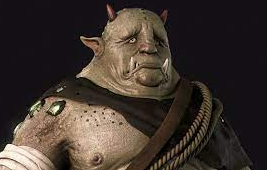
Vicious Mockery 5th Edition (5e) for D&D
A creature you see within range sees you unleash a volley of insults laced with subtle enchantments. It must succeed on a Wisdom saving throw (even if it does not understand you) otherwise it takes 1d4 psychic damage and is disadvantaged on consecutive attack rolls it makes until the end of its turn.
At 5th level (2d4), 11th level (3d4), and 17th level (4d4), this spell’s damage increases by 1d4.
In order to provide your opponent with an obstacle on their next attack, you’re yielding your action for the round. In addition, you’re doing very little damage.
Vicious Mockery 5E
Mockery 5E: Vicious Mockery
1 action was filmed
A 60-foot range is required
The components are: V
Duration: Instant
Bard (classes)
What makes this any better than True Strike? By handing over your action, you give up your guaranteed ability to try to do something helpful (but only under certain conditions (for example, he does not have multiple attacks or is not a caster)). If you have an outsized adventuring party all attacking one opponent who has one attack per turn and is not a caster, this could be useful.
Don’t get me wrong. I appreciate the role-playing fun this spell offers. What about mechanically? That seems like a loss. According to you, role-playing should never be structured around mechanics.
The power of VM is easily seen if it caused the opponent’s attacks to be affected in the following way: 1 attack at levels 1-4, 2 attacks at levels 5- 10, 3 attacks at levels 11-16, and 4 attacks at levels 17+ after the casting of Vicious Mockery.
From levels 1-4, Vicious Mockery is among the easiest attack spells. Perhaps the simplest. Compare it to Eldritch Blast or Firebolt.
Vicious Mocker
A vicious mockery has a range of “within earshot”, and it does not suffer from line-of-sight problems. You just need to know what you are going after. Often it is worth quite a bit to have the ability to deal damage where otherwise you would not. This is another foothold case, but it does happen.
VM is cast almost every round of combat by the bard within the game I run. Several of the remaining party members are big damage dealers, so losing DPR is not a big deal.
When enemies’ DPR is reduced, your party takes less damage, thus easing the burden on other party resources, such as healing, or other characters’ action economy.
It won’t be your bard who deals most of the damage at any party.
It is apples and oranges to compare potential damage of a spell with spells designed for primary damage.
There is no doubt you will see within a variety that you unleash a string of insults laced with subtle enchantments. You must succeed on a wisdom saving throw with the Vicious Mockery dnd if you hear the target, even if it doesn’t understand you.
Furthermore, on its next attack, it’s an obstacle before the end of its turn, despite taking 1d4 psychic damage. At each level, the damage would increase by 1d4 like at the 5th level, 2d4, at the first level 3d4, and at the 17th level 4d4.
Read also:



